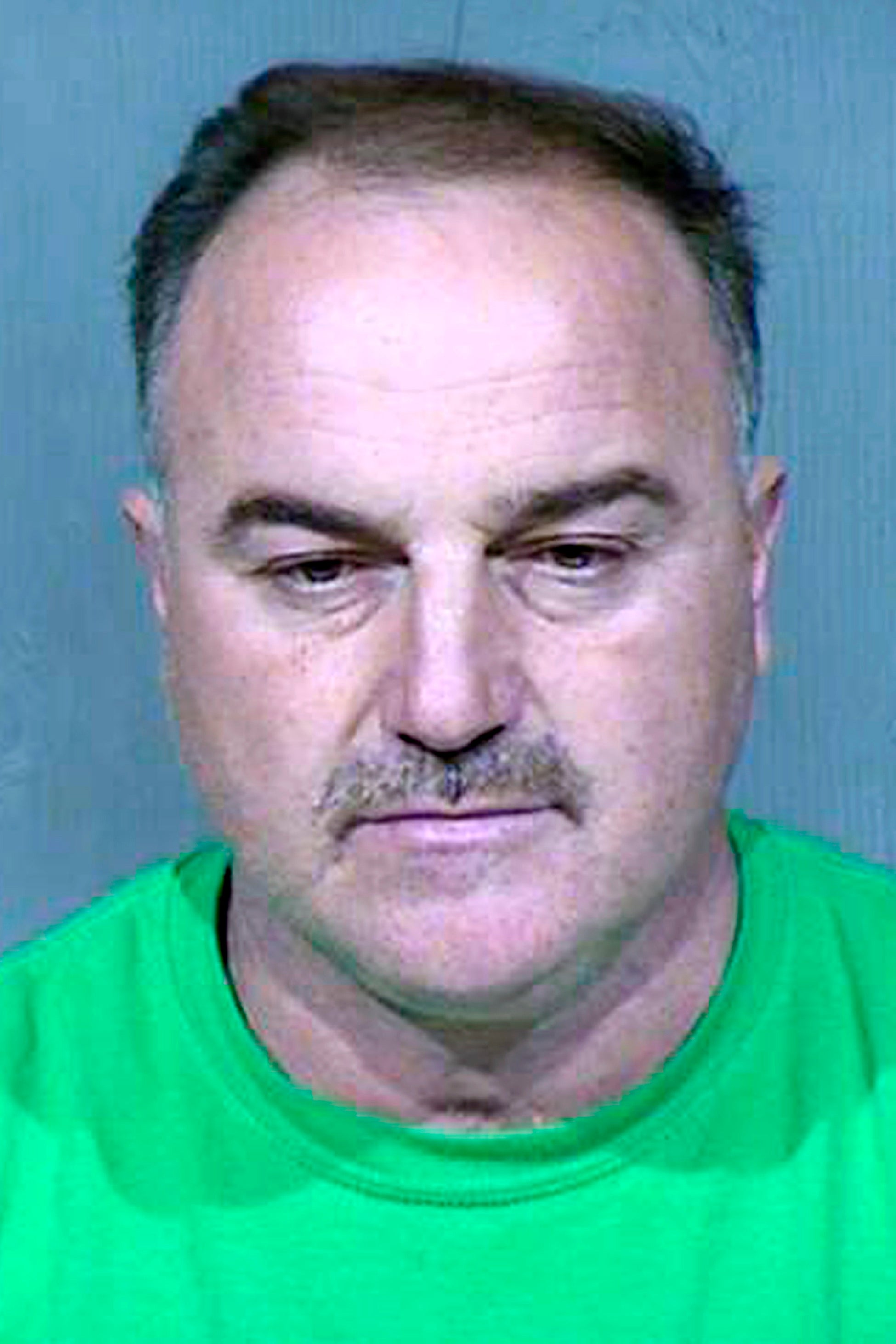Feds push to extradite Phoenix driving school owner to Iraq
Prosecutors are urging a judge to approve a request to extradite a Phoenix driving school owner to Iraq on allegations that he participated in the killings of two police officers nearly 15 years ago in Fallujah

Your support helps us to tell the story
From reproductive rights to climate change to Big Tech, The Independent is on the ground when the story is developing. Whether it's investigating the financials of Elon Musk's pro-Trump PAC or producing our latest documentary, 'The A Word', which shines a light on the American women fighting for reproductive rights, we know how important it is to parse out the facts from the messaging.
At such a critical moment in US history, we need reporters on the ground. Your donation allows us to keep sending journalists to speak to both sides of the story.
The Independent is trusted by Americans across the entire political spectrum. And unlike many other quality news outlets, we choose not to lock Americans out of our reporting and analysis with paywalls. We believe quality journalism should be available to everyone, paid for by those who can afford it.
Your support makes all the difference.Prosecutors are urging a judge to approve a request to extradite a Phoenix driving school owner to Iraq on allegations that he participated in the killings of two police officers nearly 15 years ago in the Iraqi city of Fallujah as the leader of an al-Qaida group.
They said the evidence provided by Iraqi authorities meets the standard for an American judge to certify an extradition request for Ali Yousif Ahmed Al-Nouri, an Iraqi native who came to the United States as a refugee in 2009 and became a U.S. citizen in 2015. Prosecutors said witnesses saw Ahmed at the scene of the 2006 killings and that another person who claimed to have been part of the al-Qaida group had implicated Ahmed in both deaths.
Lawyers for Ahmed asked the judge in a filing Friday to reject Iraq’s extradition request, saying his defense team hasn’t been able to adequately investigate the allegations because of the shutdown of international travel during the pandemic. They also said Ahmed’s extradition isn’t allowed under a U.S.-Iraq treaty provision that bars extraditions for offenses that are political in nature.
Ahmed, whose extradition hearing in Phoenix has been scheduled for May 25, has denied involvement in the killings and being a member of a terror group.
His attorneys said the violence and turmoil in Iraq traumatized Ahmed and prompted him to flee to Syria where he lived in a refugee camp for three years before moving to the United States. Authorities said Ahmed spent time in a Syrian prison, though they couldn’t determine what landed him behind bars.
Defense attorneys say Ahmed volunteered in Phoenix’s refugee community and worked as a military cultural adviser, traveling to bases in other states to help personnel as they prepared to deploy to the Middle East to fight the Islamic State. He bought a home in Surprise on the northwestern edge of metro Phoenix and operated the driving school serving largely Middle Eastern immigrants.
In both attacks on the two Fallujah officers, armed men who were wearing masks jumped out of cars, fired on the officers and fled.
In the first shooting, an attacker held a gun to a witness’ head in June 2006, while another attacker who started to fire on a police officer experienced a malfunction with his gun. Another attacker then killed police Lt. Issam Ahmed Hussein. The witness later identified Ahmed, who wasn’t wearing a mask, as the group’s leader, according to court records.
Four months later, Iraqi authorities say Ahmed and other men fatally shot Officer Khalid Ibrahim Mohammad as the officer was sitting outside a store. Witnesses told authorities that they recognized Ahmed, whose mask had fallen off, as one of the assailants, according to court records.
Prosecutors say the American court’s role in the extradition is limited to determining whether there is evidence of probable cause to support each charge. They say ultimately the decision on whether to send Ahmed to Iraqi will be up U.S. Secretary of State Antony Blinken’s office. Under the rules of the extradition proceeding, prosecutors said Ahmed’s ability to put on evidence is limited, noting he can’t attempt to establish an alibi or present a defense, according to court records.
Defense attorneys have disputed that Ahmed has been charged with crimes in Iraq. Instead, they said their client is the target of an arrest warrant in which he’s wanted for questioning by an Iraqi investigative court, which functions more like police and prosecutors than a trial court.
Prosecutors said Ahmed’s arrest warrant shows he is wanted for prosecution in Iraq for violations of a law barring premeditated murder. A State Department official said in court records that the United States has regularly extradited fugitives wanted in other countries, even though they haven’t yet been formally charged.
Shortly after Ahmed’s January 2020 arrest, one of his lawyers said the case emerged from information provided by informants who had “everything to gain by delivering the Trump administration a supposed ‘terrorist refugee’ in an election year.” His lawyer also said there has never been a successful extradition of anyone to Iraq in the more than 80 years that the extradition treaty between the United States and Iraq has been in place.